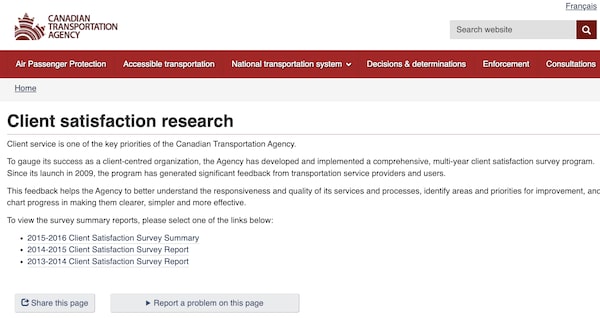Travellers wait at Toronto Pearson International Airport, as a major winter storm disrupts flights in and out of the airport on Dec. 24, 2022.Cole Burston/The Canadian Press
Matt Malone is an assistant professor in the faculty of law at Thompson Rivers University in Kamloops.
The Canadian transportation regulator whose mandate includes consumer protection of air passengers has 36,000 outstanding complaints before it. For complaints it manages to process, the agency has barely issued fines on airlines.
Over the two-year-plus stretch between March 1, 2020, and Sept. 12, 2022, the Canadian Transportation Agency levied just 27 fines on airlines (including just one at the maximum amount) under the Air Passenger Protection Regulations, the federal government’s much-vaunted air passenger Bill of Rights. Meanwhile, during roughly this same period, the government issued more than 1,000 fines for non-compliance with ArriveCan, the glitchy border app mandated during the COVID-19 pandemic for travellers entering the country.
One might wonder what kind of people sit on the CTA tribunal to accomplish such nonaction. It turns out, not the kind of people who should be regulating airlines. They should be fired and replaced with people who will defend air passengers.
The vice-chair of the agency from 2013-18, Sam Barone, was a registered lobbyist for airlines. The last chair, Scott Streiner, left the agency in 2021 to become an adviser on transportation at Deloitte, a consultancy firm whose clients include airlines.
Mr. Streiner repeatedly allowed the agency to issue decision letters green-lighting anti-competitive consolidation in the Canadian airline industry. Under his leadership, the CTA also published the notorious Statement on Vouchers in March, 2020, that let airlines deny refunds to passengers by instead issuing vouchers subject to tortuous conditions. Air Passenger Rights, a grassroots organization, sued the agency over that conduct. One of the lawyers defending the lawsuit on behalf of the agency was later appointed as a tribunal member.
Since her appointment as chair in 2021, France Pégeot has met with industry lobbyists at a brisk clip and is on track to meet Mr. Streiner’s record over his six-year tenure. So, it is hardly surprising the Air Passenger Protection Regulations have failed to take off under her leadership. Last year, the agency’s tribunal averaged a dismal annual rate of 2.4 decisions per tribunal member that actually invoked the regulations. The median decision was just 975 words long.
With such a track record, it should come as no surprise the CTA goes to great lengths to conceal information from Canadians. It only discloses the number of air passenger complaints by “number of complaints per 100 flights,” making it difficult to grasp the extent of the problem. As The Globe and Mail reported last week, it does not even track the outcomes of 97 per cent of claims. Relevant requests for information through the access-to-information system are often almost entirely redacted.
The agency knows what Canadians think about this state of affairs. In the past, it conducted client satisfaction surveys. But it stopped publishing those surveys after 2016. So last fall, I requested more recent ones (if they exist.) Right after I put in my access-to-information request, the agency disabled the relevant section of their site.
The CTA has come to represent the antithesis of consumer protection for air passengers at a time the industry desperately needs a robust regulator. In the past year, Canada has been ranked dead last in the world for flight delays – a national embarrassment. More recently, airlines have stranded people in foreign countries; over the holidays, Air Canada trapped passengers inside an airplane on a tarmac for 11 hours.
In response to that last episode, a vice-president of Air Canada in January told a House of Commons committee with a straight face: “When it is unsafe and we could jeopardize making things worse, we will always take the side of safety.” Such excuses of “safety” have played a critical role in enfeebling the Air Passenger Protection Regulations.
The federal government has responded with promises of revising the passenger Bill of Rights. “Stay tuned – you’ll see action,” Transport Minister Omar Alghabra recently stated, “you’ll see new tools introduced. Mark my words.” But new tools are not what we need. New regulators would do much better.

A screenshot of the Canadian Transportation Agency website's, as shown in the Internet Archive, from before Matt Malone sent an access-to-information request about past surveys.Handout

A screenshot of the Canadian Transportation Agency's website after Matt Malone sent an access-to-information request about past surveys. The page appears to have been taken down.Handout